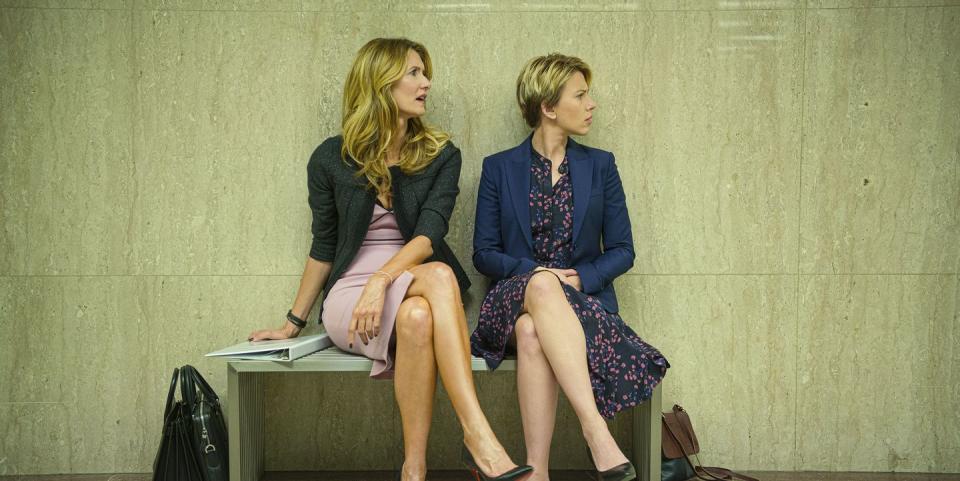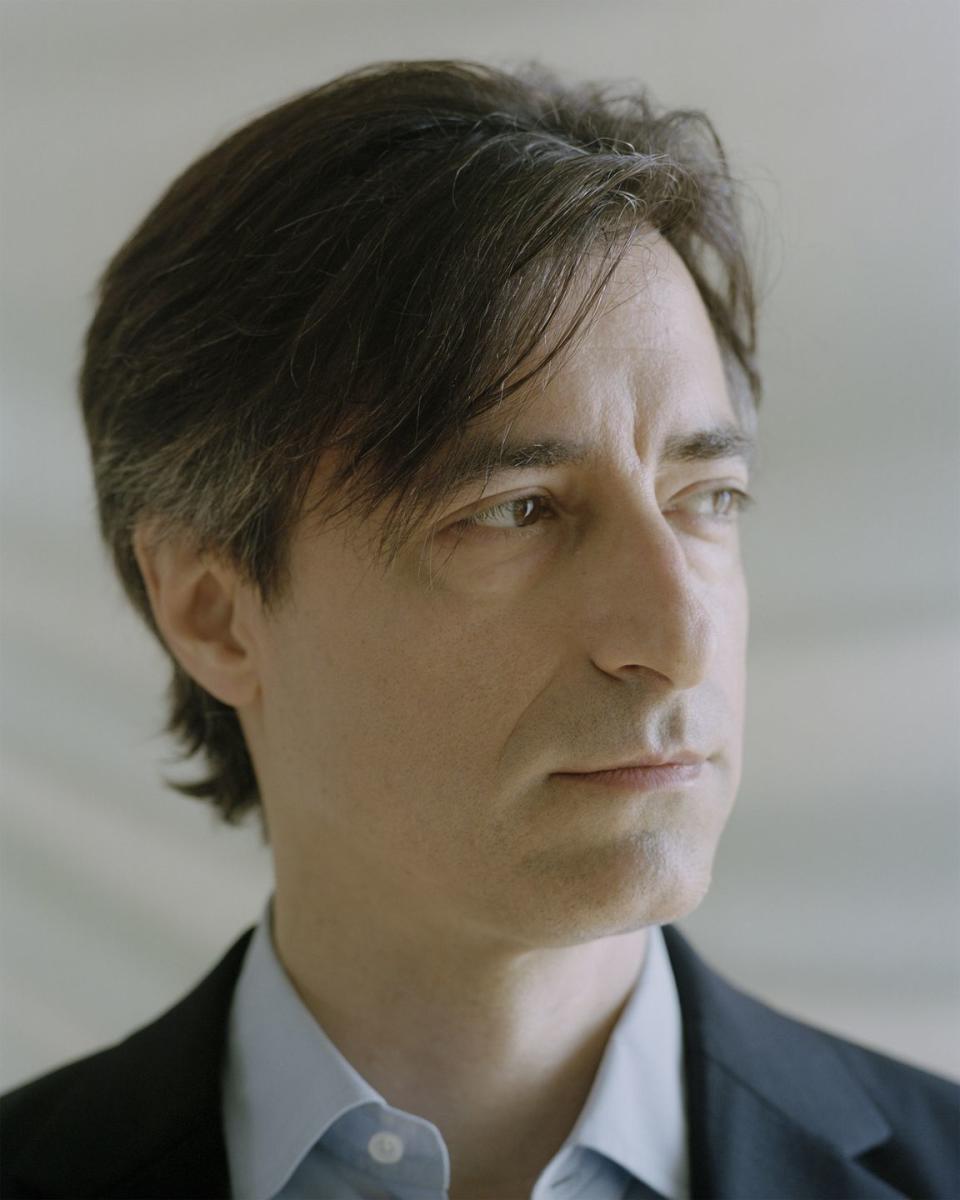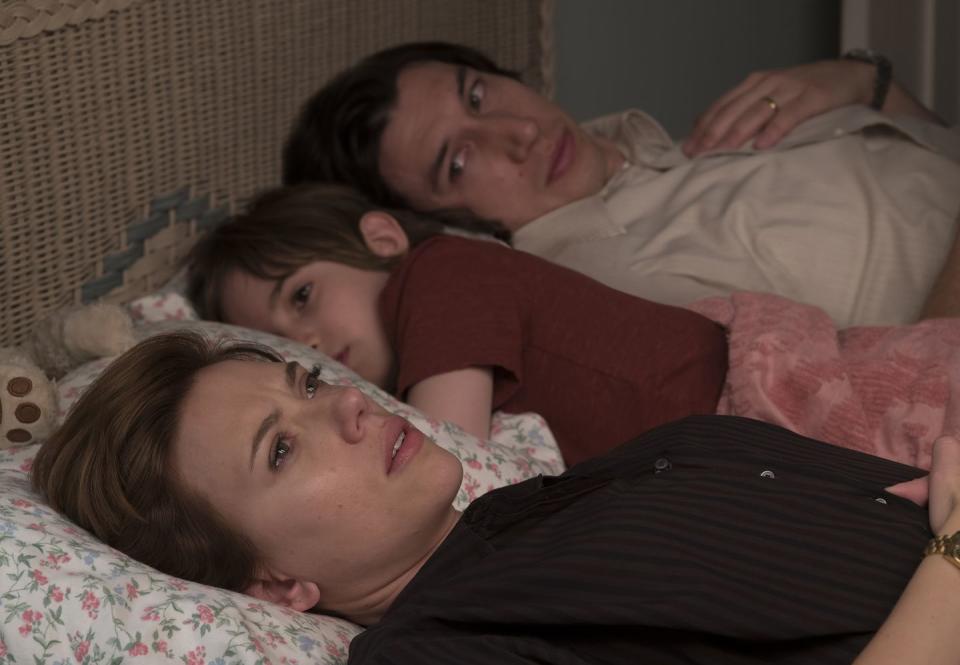Noah Baumbach On Making A Love Story About Divorce

Opening day of the Venice Film Festival is the Glorious Twelfth of Oscar season. Three of the last five 'Best Picture' winners were first shown here and six weeks after the first-night gala, after subsequent festivals at Telluride, Toronto and New York, the fullest picture possible is painted of the next year’s Academy Awards. Noah Baumbach, the writer and director of Marriage Story, the big show on day two this year, is in his Venetian hotel room, directing Interview Story, laying out the beats of our conversation.
“‘At this point, Baumbach paused to argue with the boy who had brought the wrong drink for him.’ You can use that as colour. Or something like that.” He is apologising in advance for forthcoming interruptions as various essentials are couriered to his room. Later, he is nothing but polite to the coffee-carrier, with no inquiry as to the contents of the cup, and equally pleasant to the chap bearing his tux, freshly steamed for the pending premiere.
He has nothing to say sorry for with Marriage Story. It’s an outstandingly good film, perhaps the best of the 14 he has directed, and features career-best performances from its leads, Adam Driver and Scarlett Johansson. They play Charlie and Nicole, who are trying to keep their impending divorce amicable and inexpensive by avoiding lawyers and going to therapy- like mediation. The first mediated session, and the film’s first sequence, ends with Nicole suggesting that her soon-to-be ex-husband and the mediator siding with him would be better off both without her and fellating one another.
It’s a great line — the first of many — and a portent of things to come. Charlie and Nicole try very hard to stay civil, not least for the sake of their eight-year-old son, but soon the lawyers (Laura Dern, Ray Liotta and Alan Alda, all doing fine work) get involved and best intentions turn bad, and at times downright nasty. Baumbach, quite correctly, says his film is part-comedy, part-screwball comedy, part-legal thriller, part-drama and even part-musical. This reporter laughed, cried, rooted for both sides and recoiled when Charlie and Nicole unleash their pent-up frustrations in an argument so poisonous but so believably real that it makes Alec Baldwin’s diamond-cutter rebukes in Glengarry Glen Ross seem like gentle tickings-off.

“The scene was, in a way, one of the most difficult things I’ve done as a director,” says Baumbach, “and also one of the most rewarding, if not the most rewarding, because the two of them, to accomplish what they do, are revealing so much of themselves in the characters. It’s so raw, but also so well acted at the same time. It’s the thing that I love, when it’s conscious and unconscious at the same time. It was a hard scene to jump into the middle of. We had to run the scene always from the beginning, so it was exhausting. It was painful even for me, and I feel like I can retain distance, no matter what the material is, when I make a movie. But we had to stop and walk around the block and take breaks because it was… it was a lot.”
Baumbach has felt the bitter sting of larger traumas, professional and personal. His first film, Kicking and Screaming, premiered a month after he turned 26, in 1995. Two more films came out in 1997: Mr Jealousy, which, like Kicking and Screaming, was admired by critics but avoided by audiences; and Highball, an unfinished film released on DVD against his wishes. After three films in two years, it would be a further eight before he directed another feature-length work.

“I had an interesting trajectory,” he says, typically deadpan. “Very early success of a sort, but then I had stumbles and so by the time I was 30, on the one hand, it wasn’t even necessary for me to make another movie, and also I think I didn’t really know who I was yet as a film- maker. It had come so fast. Some film-makers arrive fully formed and for me it was a different thing. Not that I enjoyed that period of not making movies, but, in retrospect, it was an important time for me. I grew up a bit. So when I had another opportunity, I was ready for it. In some intuitive sense, I was more the film-maker that I was going to become.”
That opportunity was realised in 2005 with the release of The Squid and the Whale, the painfully hilarious story of a New York couple’s divorce and its calamitous effect on their two adolescent sons. It received rapturous reviews, did very well at the box office and Baumbach received an Oscar nomination for his screenplay, which drew closely on his own childhood experience and the fallout of his parents’ separation. The father figure, played to perfection by Jeff Daniels, is just the worst and, as Baumbach told New York magazine at the time: “I’m not going to pretend it’s my friend’s father, but it is reinvented, and [my father has] written about his dad, too. I think he was able to experience it as a movie. That said, it’s got to be weird [for him].”

Marriage Story might be a less-than-pleasurable watch for Baumbach’s ex-wife, the actress Jennifer Jason Leigh. In the film, Charlie is a New York theatre director and Nicole is an actress from Los Angeles who moves back there with their son after the split. In real life, theatre-for-film aside, Baumbach and Jason Leigh went through the same. (The director is now in a relationship with Greta Gerwig, the actor and film-maker, who he cast in his 2010 film, Greenberg. They recently had their first child.)
“I didn’t discuss the film with her, but she knew I was doing it,” says Baumbach. “It’s not a story of our marriage. When she read it and saw it, she could enjoy it as a movie because it’s the story of a divorce, Charlie and Nicole’s divorce. I was never even going to attempt to tell the story of my divorce, or her divorce. Certainly, my experience going through a divorce was an influence, as was my experience as a child having my parents’ divorce. I also turned to friends of mine: so many people are divorced. People whose stories I knew as a friend, men and women, I interviewed formally, to hear more closely what they had to say, as a way to really help crack it open for me.
“Philip Roth had this great quote about when he starts writing something, he takes two stones of reality and rubs them together so they spark his imagination. That is a great way to describe how personal storytellers tell personal stories. Of course, I use my experience. I’ve done that in all my movies and I get these questions on every movie I do, but it’s the imaginative work on it, the transformation, that makes it succeed or not.”
Other elements of the film come from different places. A masterful, melancholy solo rendition of a Stephen Sondheim show tune by Charlie is in there because Baumbach had for years wanted to make a movie that could justifiably have Driver, his friend and collaborator in four films, sing Sondheim. A refreshing commitment to close-up shots, of Driver and Johansson in particular, is directly influenced by the cinematography of Sven Nykvist in Persona, the 1966 Ingmar Bergman movie. (Baumbach’s love of art-house European cinema knows no bounds: he and Leigh named their son Rohmer, after the French New Wave director Éric Rohmer.)
Of course, the best place to get ready for those close-ups is in a cinema seat as the house lights dim, but there is no doubt that most of the audience for Marriage Story will come via Netflix. The streaming platform funded the film, as it did Baumbach’s previous movie The Meyerowitz Stories (New and Selected), and is increasingly looking to make movies that can win wide critical acclaim — and Oscars — with short runs at the cinema, while also satisfying its subscribers and algorithms.

“My movies have always started small and then rolled out,” says Baumbach, “so this release will be very similar to what I’m used to. I love that people are going to get to see this movie in theatres. After that, it’s going to get an audience on Netflix that my movies in the past would not get, no question. People have a choice: they can wait to see it on Netflix or go and see it first on the big screen. I love seeing movies at theatres.”
At Marriage Story’s Venice premiere, in the Sala Grande in the 82-year-old Palazzo del Cinema, some audience members whistled in disapproval at the Netflix logo in the titles. All of them stood at the end for an ovation. Reviews were unfailingly positive, predicting Oscar nominations next February for the film, its leads and its writer-director. Awarding custody of a little golden man to these parties would be justice served.
Marriage Story is released 15 November and on Netflix from 6 December
You Might Also Like
